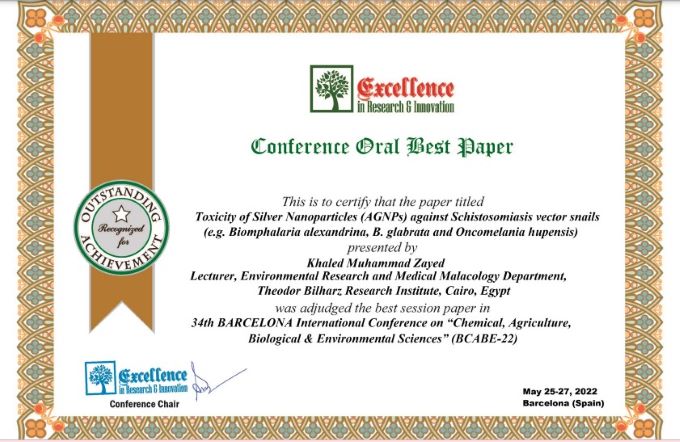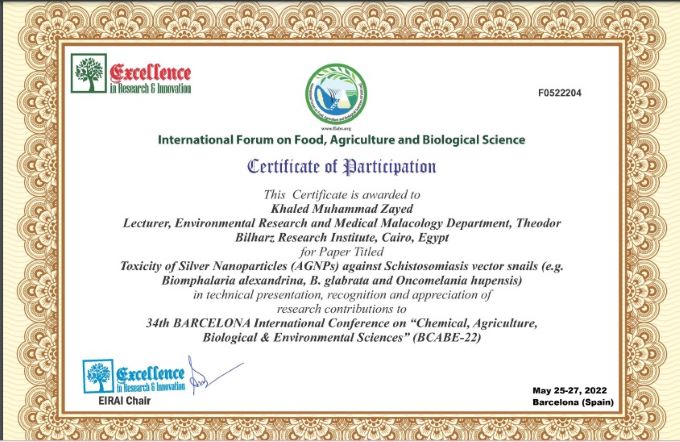The research achievement from Dr. Khaled Zayed performed in NIPD and TBRI was awarded the best session paper at Barcelona International Conference
Dr. Khaled Muhammad Zayed, Lecturer at Medical Malacology Department, Theodor Bilharz Research Institute (TBRI), Cairo, Egypt., the former post-doctoral fellowship in the National Institute of Parasitic Disease (NIPD) at Chinese Center for Diseases Control and Prevention, was awarded the best oral session paper in The 34th Barcelona International Conference on “Chemical, Agriculture, Biological & Environmental Sciences” (BCABE-22) on May 25-27, 2022, in Barcelona of Spain. Sponsored by Excellence in Research & Innovation, the conference aims to provide a platform for the researchers, scientists, scholars, engineers and practitioners from all of the world to present and share ongoing research activities face to face, which gives an opportunity to establish research relationships and to find global partners for future collaboration.
Dr. Khaled Zayed’s paper titled “Toxicity of silver nanoparticles against intermediate snail hosts of schistosomiasis. This study evaluated the molluscicidal, immunotoxic and genotoxic efficacy of silver nanoparticles on Biomphalaria alexandrina, B. glabrata and Oncomelania hupensis, the snail intermediate hosts of schistosomes. This study was performed at both NIPD and TBRI from 2019 to 2021, as the work of post-doctor program in collaboration with Dr. Xiao-Nong Zhou’s team, supported by Young Excellent Scholar Fund of Ministry of Science and Technology of China. In this study, mortality rates of snails were detected and the LC50 and LC90 values of Ag-NPs for each snail species were calculated. In addition, the levels of antioxidant enzymes, the histological changes of liver tissues by SEM and its transcriptome expression genes after 3 and 7 consecutive days of exposure to 20 nm spherical AgNPs were evaluated and statistically analyzed. Importance of this paper is that silver nanoparticles could be used to control the intermediate snail hosts of intestinal schistosomes at low concentration without affecting the surrounding aquatic environment and organisms.


